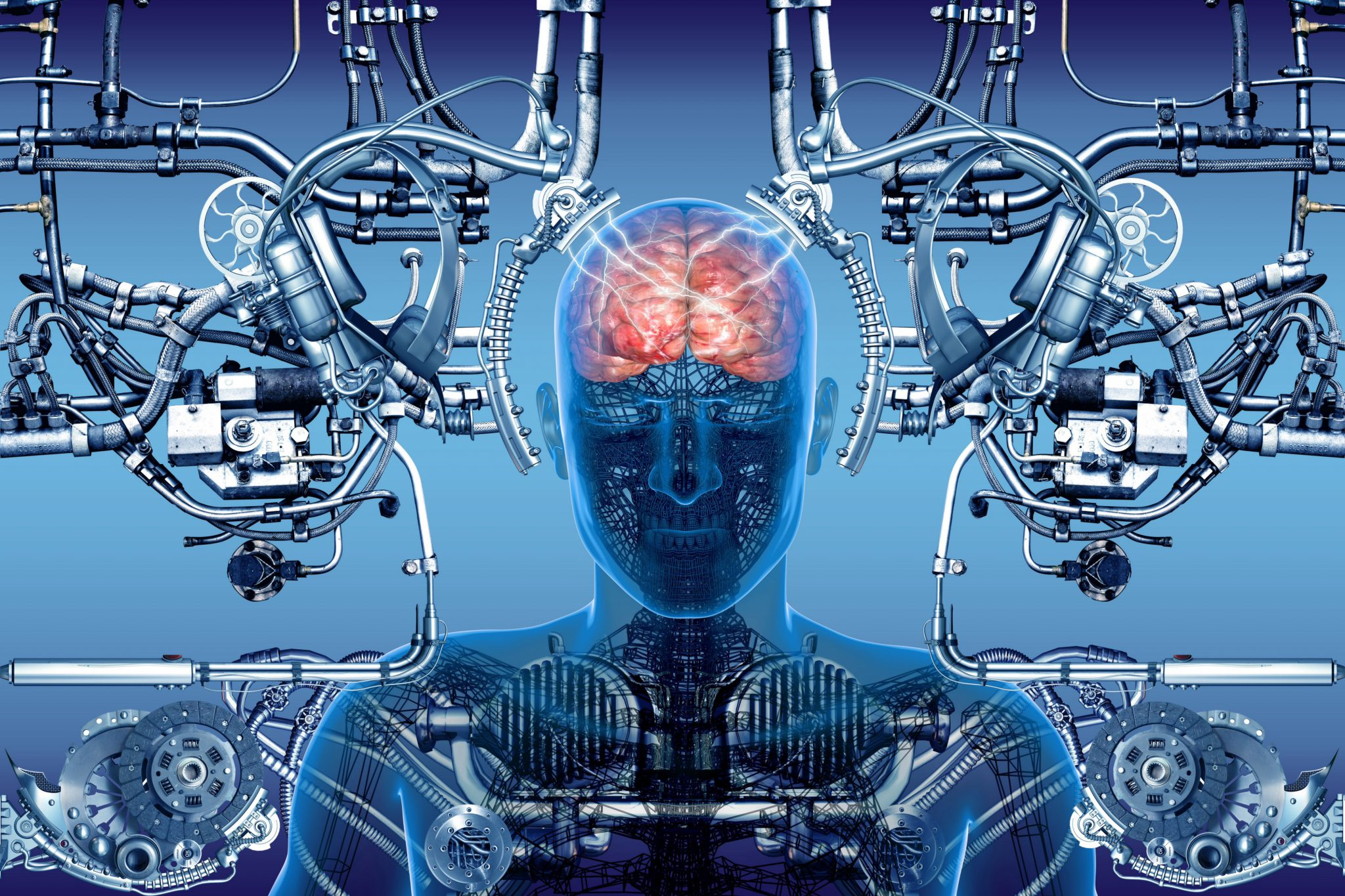Brain-Computer Interfaces: Promises and Risks Ahead
Brain-computer interfaces (BCIs) represent a groundbreaking fusion of neuroscience and technology, paving the way for revolutionary advancements in how we interact with machines. As showcased by Neuralink’s recent successes, individuals can now learn to control devices using just their thoughts, effectively turning our brain signals into commands. This remarkable mind control technology holds immense potential for improving the lives of those with disabilities, offering solutions in areas such as prosthetics and communication. However, as we venture further into the realm of neurotechnology advancements, we must carefully consider the BCI implications—particularly in relation to ethical boundaries and psychological manipulation. The future of BCIs is both exhilarating and sobering, prompting discussions around their responsible use to avoid any misuse that could infringe upon personal freedom and privacy.
Neurological interface systems, often referred to as brain-machine interfaces, are quickly evolving to blur the lines between human cognition and mechanical operation. These innovative technologies enable direct communication between the brain and external devices, facilitating unprecedented control and interaction. With the rise of companies like Neuralink, we are witnessing significant strides in neuroengineering, which could potentially reinterpret our capabilities and augment our cognitive functions. Nonetheless, the rapid development of these advanced systems poses critical questions about their implications on ethics and autonomy, particularly regarding mind control and behavioral influence. As we stand on the brink of a new era in neurotechnology, it is essential to explore both the promising opportunities and the daunting risks that accompany these advancements.
Unpacking Brain-Computer Interfaces: A Revolutionary Leap in Neurotechnology
Brain-computer interfaces (BCIs) represent a significant advancement in neurotechnology, allowing individuals to control computers and devices directly with their thoughts. This innovative technology, as evidenced by Neuralink’s pioneering efforts, holds immense potential for those with disabilities, enabling them to regain a degree of autonomy by controlling prosthetic limbs or interfacing with digital platforms through mere thought. The implications for medical science are profound, and the projected market for BCIs underscores their transformative possibilities; it could reach approximately $400 billion in the U.S. alone, addressing the needs of millions who live with disabilities like paralysis or neurological disorders.
However, the advent of BCIs is not without its concerns. While the technology offers a glimpse into a future where thought can directly influence actions, ethical implications loom large. As we advance into uncharted territory with neurotechnology, we must tread carefully. The potential for misuse, such as unauthorized access to thoughts or behaviors, echoes past experiments in psychological manipulation. With BCIs, the prospect of direct brain interactions raises questions about mental privacy and autonomy that society must address.
Historical Parallels: Lessons from Past Mind Control Experiments
The history of psychological manipulation, particularly during the Cold War, serves as a cautionary tale as we embark on developing technologies like brain-computer interfaces. Lukas Meier, in his report, draws unsettling parallels between the ambitious mind control endeavors of the past and present neurotechnology advancements. The infamous MKUltra program exemplified the lengths to which agencies would go to manipulate human behavior under the guise of national security. Such historical context emphasizes the need for vigilance in the ethical governance of current technologies.
By examining the disturbing methods used in the MKUltra program, such as drug-induced memory alterations and coercive behavior modification, we can glean important lessons. These methods, albeit crude, reflect a profound disregard for human rights and autonomy. As new BCI technologies emerge, there is a real danger that similar ethical breaches could occur, particularly if developed without proper oversight. The responsibility now falls on society to ensure that such powerful tools are not wielded with the same recklessness witnessed in previous generations.
The Ethical Dilemma of Neurotechnology: Balancing Innovation and Consent
As we stand on the precipice of a new age of neurotechnology, the ethical implications of brain-computer interfaces become increasingly critical. The ability to decode thoughts or influence behavior introduces a labyrinth of moral questions surrounding self-determination and informed consent. If technologies allow for the alteration of mental states, there is a pressing need for frameworks that protect individual rights and ensure that advancements in BCI are harnessed for beneficial purposes rather than coercive ones. The experiences of those in the past who fell victim to unethical experiments amplify this concern, as we must ensure that modern technologies do not replicate such violations.
Moreover, the potential for psychological manipulation raises alarming prospects regarding government and corporate surveillance. The idea that thoughts could become commodities to be accessed or influenced by external forces poses a significant threat to personal freedom. Societal dialogue around BCIs must therefore encompass robust discussions about ethics, accountability, and transparency to safeguard mental privacy and respect individual autonomy. Only by cultivating a conscientious approach to neurotechnology can we prevent history from repeating itself.
Neuralink and Mind Control Technology: A Journey into the Unknown
Neuralink’s ongoing developments in brain-computer interfaces not only epitomize the cutting-edge of technology but also intersect dangerously with the realm of mind control technology. While the intended outcomes, such as aiding the disabled, are commendable, the potential for misuse cannot be overlooked. With powerful technology comes powerful responsibility; the possibility that BCIs could enhance psychological manipulation raises legitimate fears that state or private entities might exploit these tools for self-serving ends. As we look toward a future shaped profoundly by Neuralink and its counterparts, the discourse around ethical implications has never been more urgent.
The parallels suggested by researchers like Meier highlight the delicate balance between progress and ethics. In an era where technology can decode and possibly influence human thought, we must remain vigilant against the creeping tendencies of control and manipulation reminiscent of Cold War strategies. Effective governance and ethical standards are paramount to ensure that brain-computer interfaces serve humanity rather than subjugate it. It is crucial to foster public awareness and dialogue surrounding the implications of this technology as we venture further into uncharted territories.
The Future of Neurotechnology: Opportunities and Risks
The future landscape of neurotechnology, particularly with the development of brain-computer interfaces, is filled with both remarkable opportunities and substantial risks. As we explore the possibilities that BCIs offer—ranging from enhanced communication abilities for locked-in patients to groundbreaking treatments for neurological disorders—the positive impacts on society are palpable. However, alongside these innovations, we must remain acutely aware of the ethical dilemmas that arise. The same technology that can empower individuals may also lead to unprecedented levels of control and exploitation unless safeguards are established.
To harness the full potential of neurotechnology responsibly, interdisciplinary collaboration is essential. Researchers, ethicists, policymakers, and the public must engage in meaningful discussions surrounding the limits of technology and the responsibilities entwined with it. By laying down robust ethical frameworks and advocating for transparency, we can navigate the challenges posed by BCIs and unlock their transformative power while guarding against the ‘dark side’ of technological advances. The path we choose in this pivotal moment will significantly shape the future of human interaction with technology.
Neurotechnology Advancements: A Double-Edged Sword
As advances in neurotechnology surge forward, brain-computer interfaces stand out as a double-edged sword. On one hand, they promise significant benefits for those with disabilities, revolutionizing how they interact with the world. Technologies like Neuralink showcase the potential for individuals to regain control over their bodies and improve their quality of life. However, this progress brings with it a host of ethical concerns, as technology that connects directly to the brain can also lead to unforeseen consequences and breaches of mental autonomy.
The concern for psychological manipulation looms large as we implement these advanced systems. There is an inherent risk that those in power may exploit BCIs to influence or control individuals without their consent, echoing the historical abuses of psychological experimentation. As we continue to innovate in the realm of neurotechnology, it is crucial to maintain a keen awareness of these risks and implement rigorous ethical guidelines to protect individuals. Only then can we achieve a balance between the technological benefits and the ethical standards necessary to safeguard human rights.
Public Perception and Acceptance of BCIs
The acceptance of brain-computer interfaces among the general public is a crucial factor in their successful integration into society. Public perception is often shaped by media portrayals and historical events, such as the CIA’s mind control experiments, which can lead to skepticism and fear regarding the intentions behind BCI technologies. Education and transparency about how these devices work and their intended purpose are vital in assuaging public fears while promoting informed consent and ethical usage.
Increased dialogue about the benefits and risks associated with BCIs can foster a culture of acceptance grounded in understanding rather than fear. By actively involving the community in discussions around neurotechnology advancements, we can address concerns regarding privacy, autonomy, and potential misuse. Confidence in BCI technologies will not only be built through demonstrated results but also through a shared commitment to ethical considerations that prioritize the well-being of individuals and society as a whole.
The Role of Regulatory Frameworks in BCI Development
As we venture deeper into the realm of brain-computer interfaces, the establishment of comprehensive regulatory frameworks becomes imperative. These regulations would govern the development, testing, and implementation of BCI technologies, ensuring that ethical standards are adhered to and that individual rights are protected. By setting clear guidelines, stakeholders can mitigate the risks associated with neurotechnological advancements and create an environment conducive to innovation while safeguarding against potential abuses.
Effective regulation requires collaboration between scientists, ethicists, lawmakers, and advocacy groups to devise standards that reflect societal values and concerns. Such frameworks should not only focus on protecting individuals from psychological manipulation but also encourage responsible development that prioritizes mental privacy and informed consent. Engaging proactivity in creating these policies can help ensure that the evolution of BCI technology aligns with the best interests of humanity.
Exploring the Intersection of AI and Brain-Computer Interfaces
The rise of artificial intelligence (AI) holds significant implications for the development of brain-computer interfaces, offering potential breakthroughs in neurotechnology. By integrating AI with BCIs, researchers can enhance the functionality and adaptability of these devices, potentially allowing for more precise control and better user experiences. However, this intersection raises important questions surrounding ethics, especially concerning data privacy and the management of brain data when paired with AI’s capabilities.
As technology progresses, the combination of AI and BCIs could lead to profound advances in understanding and interpreting brain signals. However, without appropriate safeguards and ethical oversight, the risk of misuse increases, particularly regarding psychological manipulation. It is essential that we scrutinize these advancements, fostering a dialogue about the potential benefits and risks they pose to mental autonomy and privacy. In doing so, we can pave the way for responsible innovation at the crossroads of these powerful technologies.
Frequently Asked Questions
What are brain-computer interfaces (BCIs) and how do they work?
Brain-computer interfaces (BCIs) are advanced neurotechnology systems that facilitate direct communication between the brain and external devices. By translating brain signals into commands, BCIs enable individuals to control computers, prosthetic limbs, or other devices using their thoughts. This innovative technology holds significant promise for improving the lives of those with disabilities, particularly in applications like speech generation and motor function rehabilitation.
How does Neuralink contribute to the field of brain-computer interfaces?
Neuralink is a frontrunner in brain-computer interface (BCI) development, working on implantable devices that allow individuals to control technology directly with their brains. Founded by Elon Musk, Neuralink aims to enhance neurological function and assist those with spinal cord injuries. Its pioneering research is focused on creating a seamless interface between the brain and computers, effectively merging human cognition with digital technology.
What are the implications of BCIs for psychological manipulation?
The implications of brain-computer interfaces (BCIs) extend beyond medical applications and venture into ethical concerns regarding psychological manipulation. With the ability to decode thoughts and possibly influence behavior, there are fears that BCIs could be misused for coercive purposes, echoing historical instances of mind control experiments. This raises important questions about consent, mental privacy, and the potential for governments or corporations to exploit BCI technology.
Can brain-computer interfaces be used for mind control?
While brain-computer interfaces (BCIs) are primarily designed to assist individuals in communicating and interacting with the world, there are concerns about their potential misuse for mind control. The technology’s capacity to influence thoughts and behaviors poses ethical risks, particularly if exploited by entities seeking to manipulate individuals without their consent. The development of robust ethical guidelines is essential to prevent such abuses.
What are the risks associated with neurotechnology advancements like BCIs?
As neurotechnology advancements like brain-computer interfaces (BCIs) progress, they come with various risks including privacy violations, unintended behavioral changes, and ethical dilemmas surrounding consent. Historical parallels, such as the CIA’s mind control experiments, highlight the potential dangers of misusing these technologies. It is crucial for researchers and policymakers to address these concerns to protect users’ rights and mental autonomy.
What are the future prospects of brain-computer interfaces in healthcare?
The future prospects of brain-computer interfaces (BCIs) in healthcare are promising, with applications ranging from assisting paralyzed individuals to restoring communication for those with speech impairments. As technology evolves, BCIs have the potential to revolutionize therapies for neurological disorders, enhance cognitive functions, and create new methods for rehabilitation, ultimately leading to significant improvements in quality of life for patients.
How do BCIs change the way we interact with technology?
Brain-computer interfaces (BCIs) fundamentally transform our interaction with technology by enabling direct communication through thought, eliminating the need for physical input devices. This presents new possibilities for individuals with disabilities and opens avenues for advancements in virtual reality, gaming, and other fields where intuitive commands can enhance user experiences. Such technological integration signifies a shift towards a more seamless meld of human and machine interaction.
What ethical considerations surround the use of brain-computer interfaces?
The use of brain-computer interfaces (BCIs) raises essential ethical considerations, particularly regarding user consent, privacy, and the potential for psychological manipulation. As BCIs become integrated into societal applications, it is vital to establish regulatory frameworks that safeguard individuals from coercion and protect their mental autonomy against intrusive technologies.
| Key Points | Details |
|---|---|
| First BCI Implant | Noland Arbaugh received a Neuralink brain chip implant, enabling him to control a computer mouse with his mind. |
| Potential Applications | BCIs can assist individuals with disabilities in controlling prosthetic limbs or converting thoughts to speech. |
| Market Potential | The U.S. BCI market is projected to reach around $400 billion, addressing millions with disabilities. |
| Historical Warning | The Carr Center report discusses historical abuses linked to brain control experiments, notably MKUltra. |
| Concerns about Misuse | There is a risk that BCIs could be exploited for mind control or behavioral manipulation. |
| Call for Caution | The report urges careful consideration as advancements could lead to serious ethical implications. |
| Support for Development | Despite concerns, support for BCI development is crucial to maintain a technological edge. |
Summary
Brain-computer interfaces (BCIs) represent a groundbreaking advancement in neurotechnology, offering transformative potential for individuals with disabilities. However, as highlighted by recent discussions, the development of BCIs must proceed with caution, taking into account historical lessons related to mind control and ethical considerations. The potential for misuse poses serious risks, and the need for responsible innovation is paramount to prevent future abuses while harnessing the life-changing benefits of this technology.



